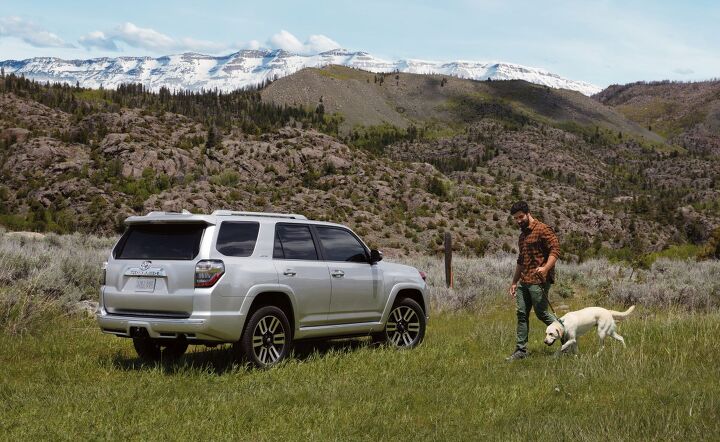Pets & Insurance: Stay Out of The Dog House!
We all love the idea of travelling with our best friends—whether they have two legs or four! But before you hit the road you need to make sure you understand how to keep your pets safe in the car, as well as how they fit into your insurance coverage.
THE BASICS
Most importantly, remember that pet injury coverage is not the same as pet insurance. While pet insurance will cover vet bills in the event of illness or injury, pet injury coverage is a part of your auto insurance policy that is either included as part of collision coverage OR can be purchased as an addition to your policy. Toyota Auto Insurance Pet Passenger® coverage can help ensure that everyone in the car will get the care they deserve.
Not all insurance companies offer accident coverage for pets, so determine if this customization is a priority for you before you start shopping for policies. Always remember to read the fine print before purchasing pet injury coverage. In most cases pet injury is limited to dogs and cats, meaning your birds, reptiles, and rodents may not be covered in the event of an accident. If you’re unsure about your pet’s eligibility, be sure to speak with an agent to answer all your questions.
Typically, only pets owned by the policy holder, or a member of their household qualify for coverage if a claim is made. If you frequently foster animals or volunteer for rescue organizations, you should speak with your organization and insurance agent to determine the best strategy for covering any potential expenses associated with animals you don’t personally own.
IN THE EVENT OF AN ACCIDENT
No one likes to think of worst-case scenarios, but if your furry friends are going to join you on road trips you need to be prepared for how to handle an accident with them in the car. If you are at fault, you might think collision coverage covers vet expenses, but only if it is explicitly stated in your policy. Research ahead of time can save you a lot of panic (and money!) in the event of an accident.
If someone else is at fault and your pet is injured the other party’s damage or liability coverage will most likely cover medical expenses because insurance companies classify pets as property. Even so, it’s worth it to have some sort of pet insurance to help cover the costs of unforeseen vet expenses. If your insurance company doesn’t offer pet insurance, you can ask your vet, shop online, or ask a Toyota Insurance agent for help finding a policy that fits your needs.
If you are in an accident, be calm and confident. Once you make sure your vehicle is in a safe place, turn on your hazards and check on your pet. If your pet vocalized during or after the incident (whimpering, growling, etc.), approach them with caution. Even the gentlest animals can bite when injured or scared. If they are injured use a towel or coat to wrap and immobilize them. If the accident occurred locally, call your vet. If you’re travelling, first responders might be able to direct you to an emergency vet nearby.
TIPS FOR SAFE TRAVEL
When you think of pets and cars it’s hard not to think of a dog with its head outside the window, cheeks flapping in the wind. But even a small fender bender could injure your pet if they aren’t properly secured in your vehicle. A whopping 84% of pet owners do not restrain their pet while travelling, increasing their risk of an accident and injury. Invest in a harness that buckles into your car’s seat belts or keep your smaller animal in a crate to avoid unnecessary risk.
It’s never too early to start training your pup, so start teaching them good behavior in your vehicle as soon as you get them. Correct them when they bark or howl and try giving them a small treat when they enter. This will help them associate the car with positive emotions! Whenever you travel with your pet make sure they are wearing a collar with their name and your contact information. Microchipping your pet is another way to facilitate a happy reunion in the event they run off.
While on the road, NEVER leave your pet alone in the car. Not only can cars be deadly for pets if they get too hot or cold, but pets are at risk for theft. Create a travel kit for your animal with all the essentials: IDs, vaccination record copies, food, bowls, leash, waste bags, and any medications. It’s also a good idea to keep a recent photo of your pet on hand. Avoid feeding or watering while the vehicle is moving, but make sure you have plenty of water to give your pet whenever you make stops.
Pets are like family, and we want to make sure your four-legged passengers are protected in the event of an accident. We hope these tips help you stay prepared and safe while on the road so all your travels with your animal companions are enjoyable.
*This is a sponsored article by Toyota Insurance Management Solutions
More by AutoGuide.com News Staff




































Comments
Join the conversation
Silly grin on the face of the dog at the start of this article is wild, and funny as can be! LOL
Talk about a Bad job of Photo-shopping with that dog photo LOL